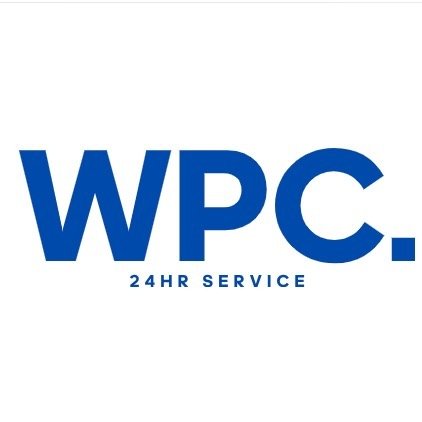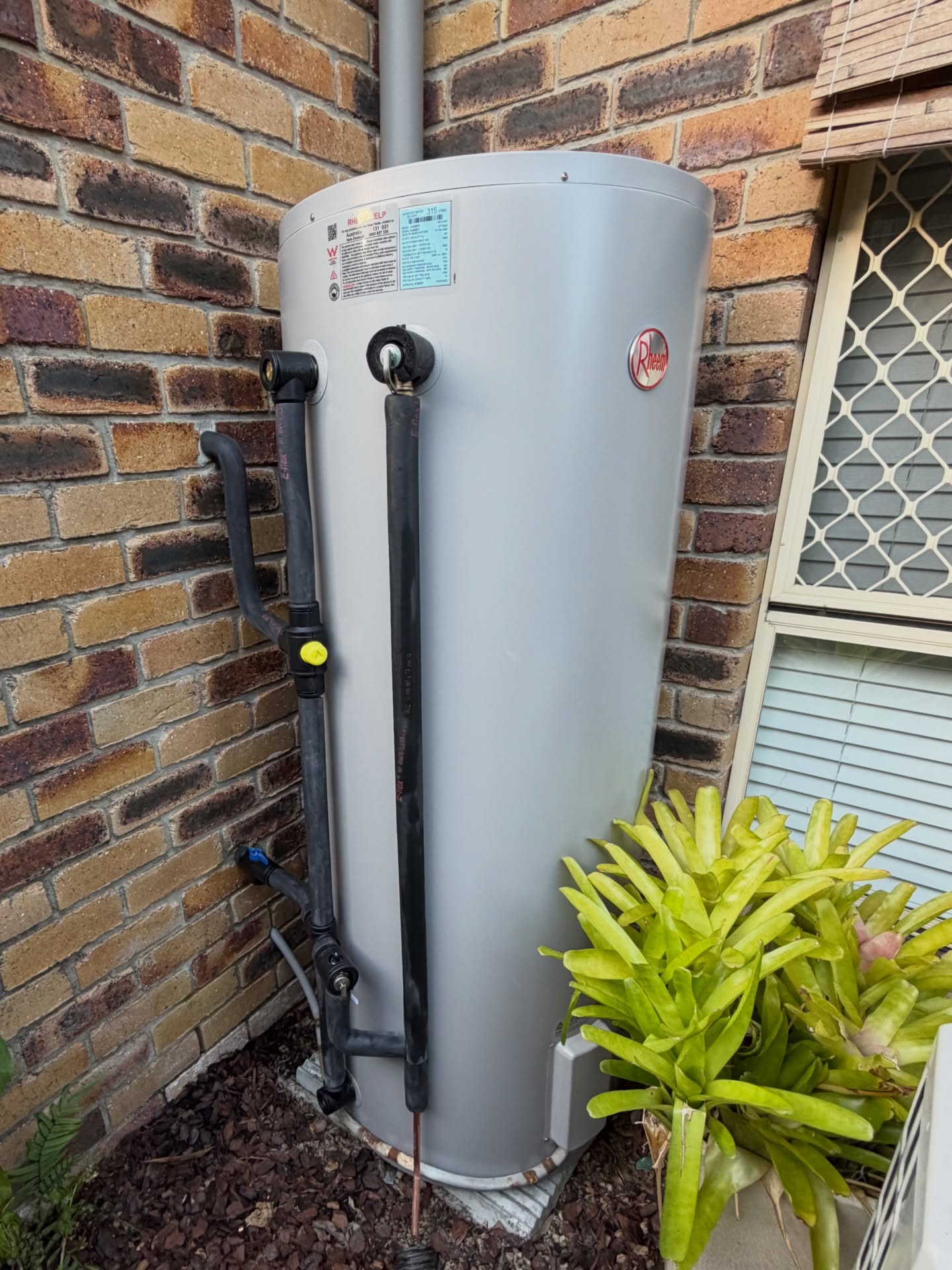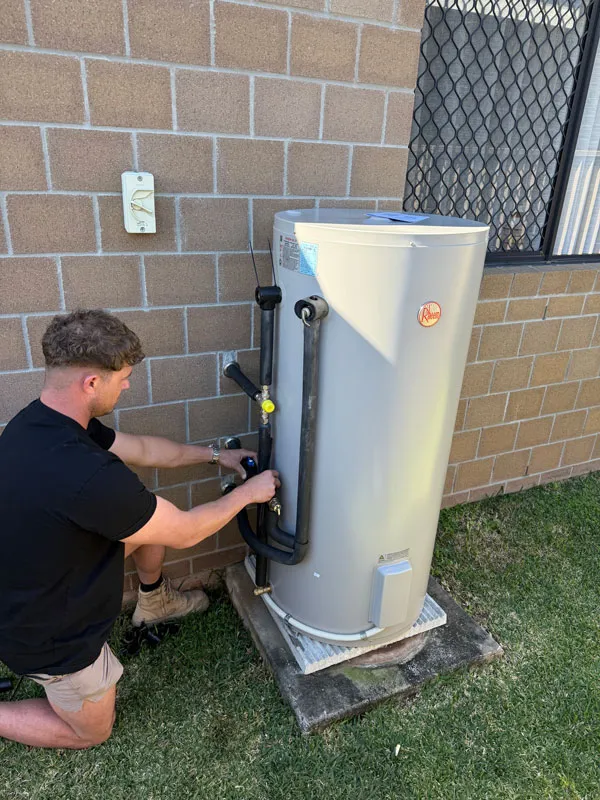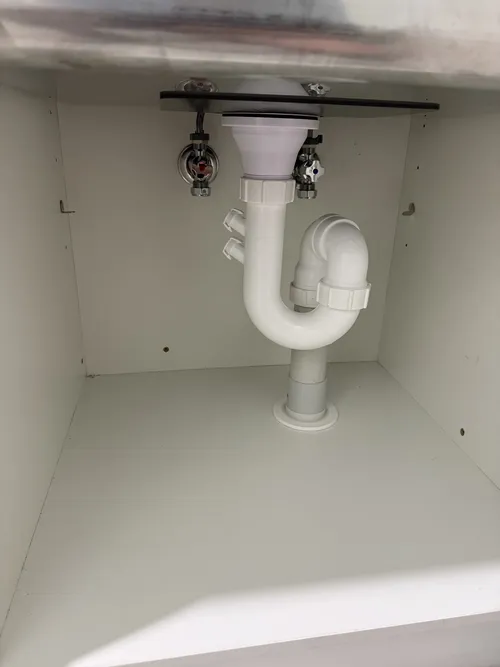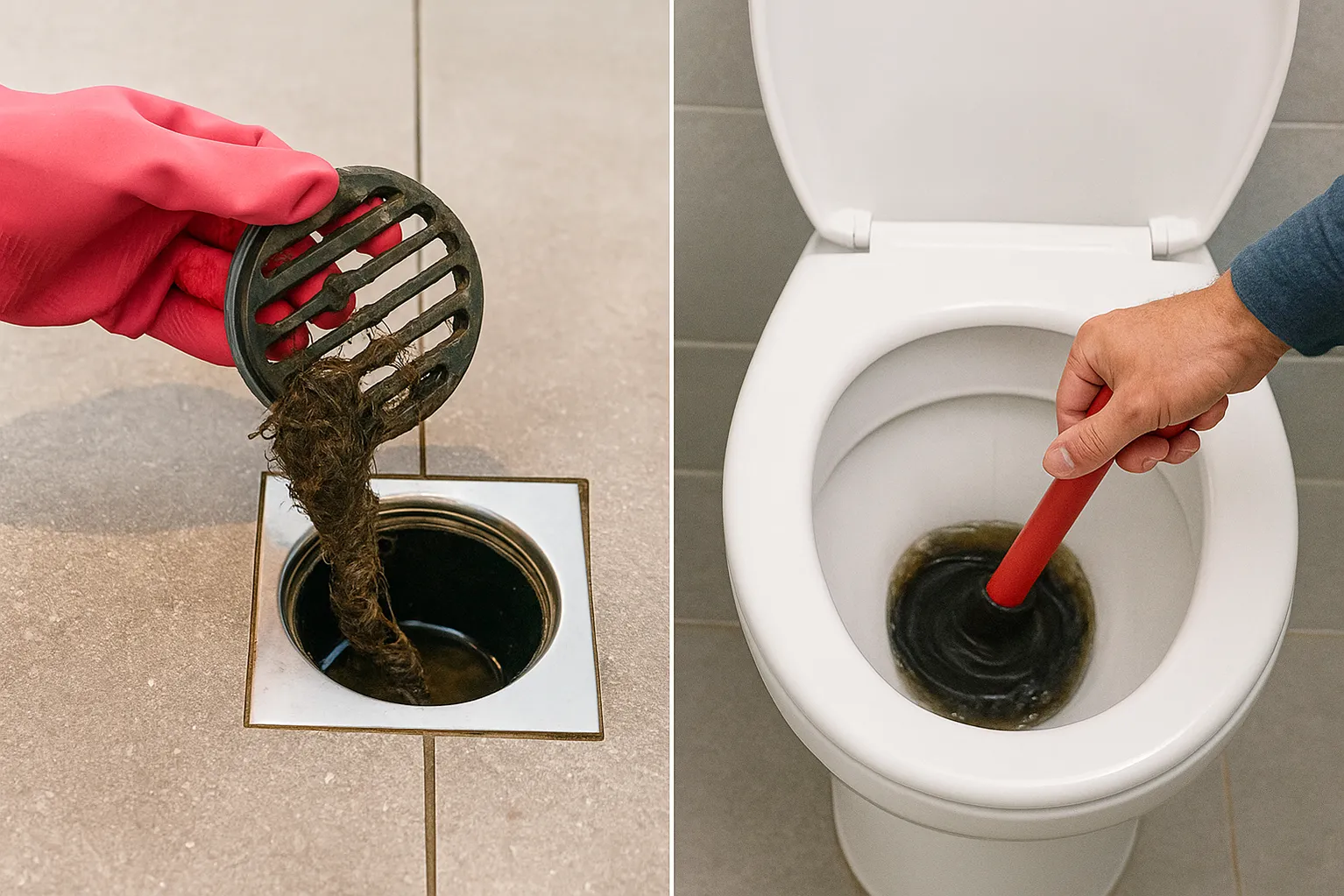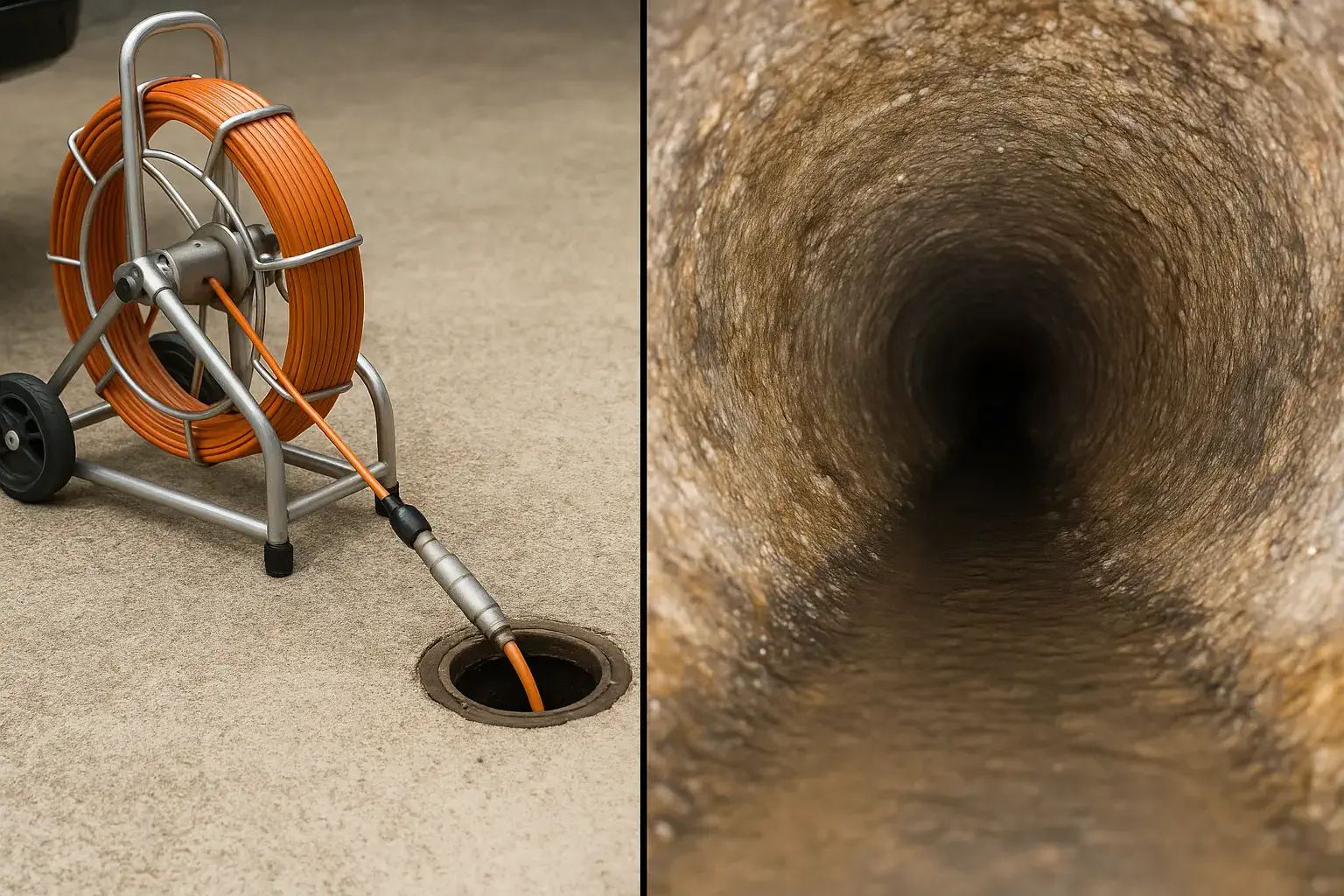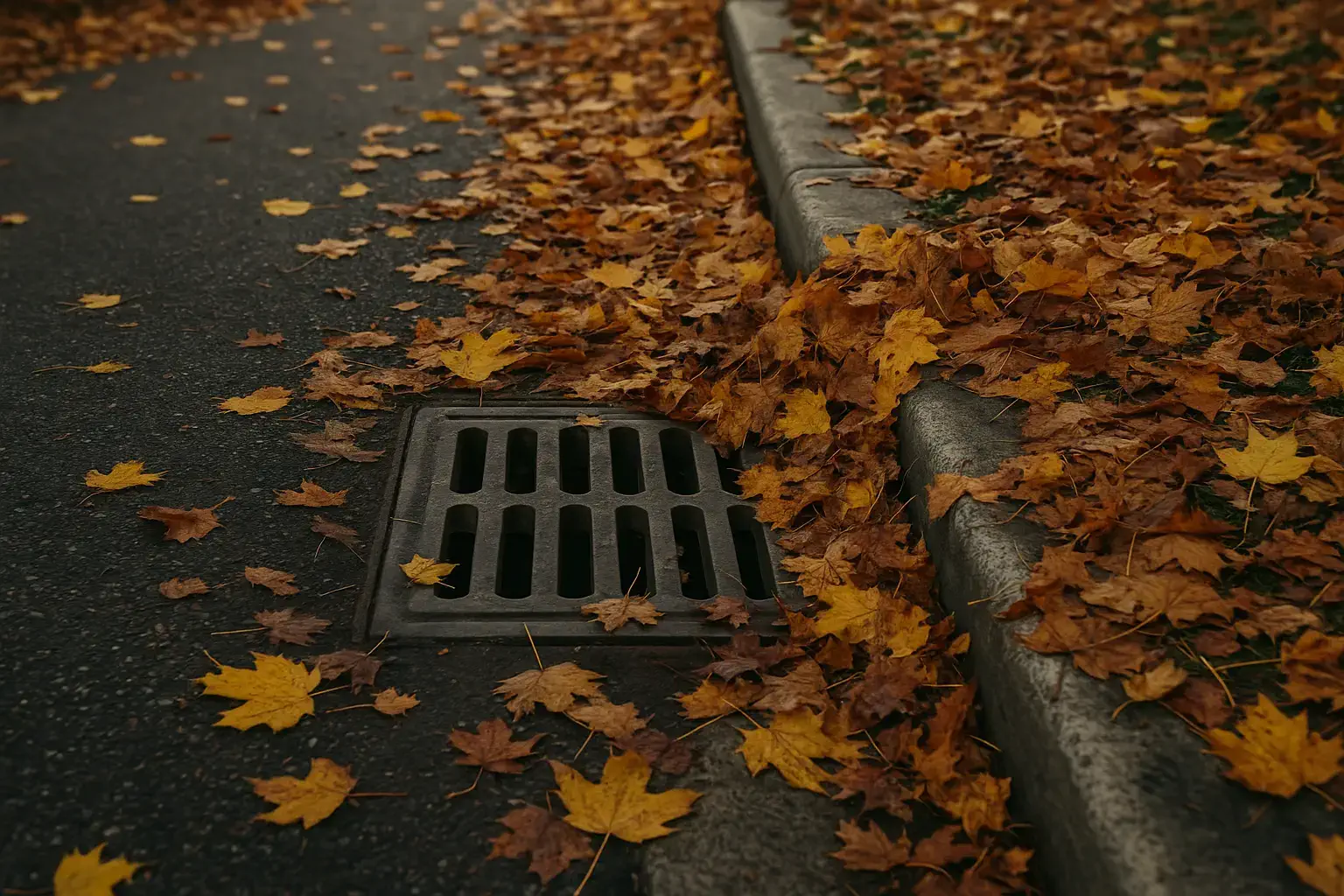
Blocked Drains Brisbane - A Seasonal Survival Guide for Homeowners
Ever noticed that when it really rains in Brisbane, your drains suddenly start to act up? Maybe the shower is taking ages to empty, or that outdoor drain is bubbling like a witch's cauldron. As a local plumber who's seen a fair share of Brisbane's drainage dramas, I can tell you these headaches are often tied directly to our unique weather. It's not just about what we put down the sink but it's also about what Mother Nature throws at our pipes. This guide will walk you through the common seasonal drainage issues Brisbane homeowners face, why they happen, and most importantly, how to tackle them so you can avoid messy surprises.
Why Our Drains Work Overtime
Living in Brisbane is fantastic, but our beautiful subtropical climate can be surprisingly tough on your home's hidden plumbing. We swing from long, hot, dry spells to sudden, intense downpours and sometimes, outright wild storms. Each shift in season brings its own set of challenges for your drainage system. Understanding these shifts helps us stay ahead of the game.
Summer Storms
Our Queensland summers are known for sweltering days, often ending with those dramatic, booming thunderstorms. When these storms hit, they drop a massive amount of rain in a very short time which can easily overwhelm your drains.
What's typically happening?
- Overflowing Gutters: If your gutters fill too fast, water can spill over the edges, drenching the ground right next to your home putting a lot of pressure on underground pipes.
- Debris Wash-In: The sheer force of heavy rain washes all sorts of things - leaves, dirt, small sticks, even pebbles - off your roof and into your stormwater drains.
- Sewer Overload: In really severe downpours, the public sewer system can get overloaded. This can cause sewage to back up into your home's drains, especially if your pipes already have small cracks or weak spots.
I remember getting a frantic call from a family in Paddington after a huge summer storm. Their backyard was basically a swimming pool, and water was bubbling out of their outdoor drains. We found their main stormwater line completely choked with a thick, sludgy mix of mud and palm fronds. The rain had just pushed everything into one big, dense blockage. It was a messy job to clear, but it absolutely stopped serious water damage to their home’s foundations. This shows you how quickly a summer storm can turn a small issue into a major one.
Autumn Leaves
Autumn in Brisbane is lovely, the weather cools down, and some trees even put on a show. But those falling leaves? For your drains, they can be a real headache.
The sneaky problem:
- Gutter Traps: Leaves, twigs, and other tree debris love to collect in your gutters and downpipes.
- Drainpipe Obstructions: Once leaves get into your downpipes, they often get stuck, especially at bends or where pipes connect. When wet, these leaves become a matted pulp that's incredibly difficult to move.
- Underground Blockages: If enough leaves manage to get past your downpipes and into your underground stormwater lines, they can create serious blockages, particularly if there's already some dirt or silt settled in the pipes.
In my experience working with Brisbane homes, especially those in older suburbs like Ashgrove that are blessed with mature trees (think those beautiful Jacarandas or massive Poincianas), autumn often brings a spike in drain issues. Cleaning your gutters regularly, especially before and during autumn, really makes a massive difference.
Winter Worries
Brisbane winters are generally drier, with more sunshine, but that doesn't mean your drains are off the hook. In fact, what happens during the dry months can set you up for big problems when the rain returns.
Less obvious but serious issues:
- Tree Root Invasion: During drier periods, tree roots are desperate for moisture. Your underground pipes, particularly those with small cracks, loose joints, or older, porous materials, become irresistible targets. Roots will sneak in, and once inside, they'll grow, expand, and create dense blockages that catch everything flowing past. I've found that Brisbane residents often forget about their drains in winter because there's less rain. But this is actually a prime time for these hidden root problems to develop unseen.
- Grease Buildup: With less water flushing through your drains, any fats, oils, or grease (FOG) poured down kitchen sinks can solidify much more easily. This sticky mess clings to the inside of your pipes, leading to slow drains and eventually, full blockages.
Spring Growth
Spring brings a burst of new life, and for your plumbing, that often means a surge in vigorous root growth.
Renewed root activity:
- As trees and shrubs burst into new leaves and flowers, their root systems become incredibly active, pushing out new growth.
- Any tiny crack, loose joint, or weak point in your underground pipes acts like an open invitation for these searching roots looking for water and nutrients.
- Once roots get inside, they can grow rapidly, forming a dense, fibrous network that acts like a sieve, trapping debris like toilet paper, hair, and food scraps. This quickly leads to severe blockages.
This time of year is actually very common for urgent calls about recurring blockages, especially in older homes in suburbs like Annerley or Holland Park where established trees are abundant and original terracotta pipes might still be in use.
What's Really Blocking Drains in Brisbane Homes?
Knowing what commonly causes blockages is like having a secret weapon. Here are the usual culprits I see day in and day out in Brisbane homes:
- Tree Roots: This is probably the number one cause of serious, recurring blockages in Brisbane's underground sewer and stormwater pipes. Our climate encourages lush growth, and established trees mean roots are constantly searching for moisture and nutrients. Any pipe crack is an easy entry point.
- Fats, Oils, and Grease (FOG): Pouring cooking oil or grease down the kitchen sink is a huge no-no. It cools, solidifies, and sticks to the inside of your pipes, slowly building up over time and trapping other debris. Imagine it like plaque hardening in an artery, eventually it blocks the flow.
- Hair: A major offender in bathroom drains. Hair combines with soap scum to form clogs that are incredibly tough to break down, often needing more than just a chemical cleaner.
- "Flushable" Wipes and Hygiene Products: Despite what the packaging might claim, most "flushable" wipes don't actually break down like toilet paper. They create massive, resilient clogs in sewer lines, both in individual homes and the public system. Cotton buds, dental floss, and feminine hygiene products also fall into this category. Remember to always bin them!
- Food Scraps: Even with a garbage disposal, large food scraps, coffee grounds, and starchy items like rice or pasta can swell and create blockages.
- Leaves and Debris (Stormwater): As we talked about, leaves, dirt, small sticks, and even small garden pebbles can wash into outdoor drains and downpipes, leading to stormwater blockages, especially after heavy rain.
- Foreign Objects: Toys, jewellery, car keys...you'd be surprised what accidentally gets dropped down toilets or drains. Kids are often the masterminds behind these unexpected blockages!
- Collapsed or Damaged Pipes: Over time, pipes can crack, shift due to ground movement (especially common with our clay soils), or even completely collapse. This creates a direct obstruction and a prime spot for debris to snag, leading to recurring problems.
Signs You Have a Blockage
Catching a blocked drain early can save you a whole lot of stress and expense. Your drains often send out little distress signals before they completely shut down. Keep an eye (or ear) out for these signs:
- Slow Draining Water: If water is taking an unusually long time to drain from your sinks, showers, or bathtubs, it's often the very first hint of a partial blockage building up.
- Gurgling Noises: Heard strange gurgling sounds coming from your drains, especially after flushing a toilet or running water? This often means air is trapped in the pipes due to a blockage, trying to escape as water moves. For stormwater, gurgling in yard gullies during rain means a partial blockage is trapping air.
- Unpleasant Odours: Stagnant water and decomposing debris stuck in a blocked drain can produce truly foul smells, often like rotten eggs or raw sewage. If your drain traps are clear but the smell persists, there might be a break in the pipe or a serious accumulation of gunk.
- Water Backing Up: This is a classic "uh-oh" moment. If water backs up into another fixture when you use a different one (e.g., toilet water bubbling up in the shower drain when flushed), it's a strong indicator of a blockage in a shared main line and is definitely a job for a professional.
- Overflowing Toilets: If your toilet water rises to the brim or overflows after flushing, you've got a significant blockage on your hands. This needs immediate attention to prevent a messy overflow.
- Outdoor Drain Overflow: If your outdoor drains or grates are overflowing, especially during or after rain, your stormwater system is likely struggling with a blockage.
- Puddles in the Yard: Unexplained wet spots or puddles in your garden, even when it hasn't rained, could point to a broken or blocked underground pipe leaking water. In Brisbane, we've even seen sinkholes appear due to long-term hidden pipe leaks. If you notice any depression or soggy soil above a drain line, it’s a vital sign to investigate.
Quick Fixes for Minor Blockages (and Knowing When to Stop!)
For those small, everyday clogs, there are a few things you can safely try yourself. Think of these as your first line of defense. But listen to your gut: if something feels wrong, isn't working, or gets worse, stop immediately and call a professional plumber. You can definitely do more harm than good with the wrong approach or tools.
Kitchen Sink Clogs
- Hot Water & Dish Soap: For minor grease clogs, carefully pour a kettle of very hot (not boiling!) water down the drain, followed by a good squirt of dish soap, then another kettle of hot water. The soap helps break down the grease, and the hot water helps flush it away. Only do this if your pipes are metal; boiling water can warp or damage PVC pipes.
- Baking Soda and Vinegar: This classic combo can work wonders for minor clogs. Pour about half a cup of baking soda down the drain, followed by half a cup of white vinegar. The fizzing reaction can help dislodge light blockages. Let it sit for 30 minutes to an hour, then flush thoroughly with hot water.
- The Trusty Plunger: A good old-fashioned plunger can be surprisingly effective for many sink clogs. Make sure you have enough water in the sink to completely cover the plunger's cup, creating a tight seal. Plunge vigorously for 20-30 seconds.
Bathroom Drain Blockages
- Hair Snare/Drain Snake Tool: These inexpensive, flexible plastic tools with barbs on them are fantastic. They can pull out shocking amounts of hair and gunk from shower and sink drains. They're excellent for surface clogs.
- Manual Plunger: Just like with kitchen sinks, a plunger can often clear hair and soap scum blockages in bathroom sinks and showers.
- Cleaning the P-Trap: For persistent sink clogs, the U-shaped pipe directly under your sink (the P-trap) is a common collection spot. Place a bucket underneath to catch any water, carefully loosen the slip nuts on either side, and remove the trap. You'll likely find the clog right there. Clean it out thoroughly and reassemble carefully.
Toilet Trouble
- The Right Toilet Plunger: Invest in a good quality toilet plunger (one with a flange extension on the cup that seals to the toilet's drain opening). Make sure there's enough water in the bowl to cover the plunger. Create a good seal and plunge with firm, consistent strokes. Patience is definitely key here.
- Hot Water (Never Boiling!): For some toilet clogs, pouring a bucket of hot (again, not boiling) water into the toilet bowl from about waist height can sometimes help dislodge the blockage. The sheer force of the water can help push it through.
When to Call In The Professionals
While those DIY methods can be satisfying for minor issues, there are absolutely clear signs that you need to put down the plunger and call in a professional. Trying to fix a complex blockage yourself can lead to much bigger, more expensive problems, like damaging your pipes or causing a nasty sewage backup into your home.
It's time to call us if:
- Recurring Blockages: If the same drain keeps blocking, it's a huge red flag signalling a deeper, structural problem, often aggressive tree roots, a collapsed section, or a shifting pipe.
- Multiple Fixtures Blocked: If more than one sink, toilet, or shower is blocked, especially if they're on different levels of your home, the issue is almost certainly in your main sewer line. This is definitely a job for a professional.
- Foul Sewage Odours: Persistent, strong sewage smells usually indicate a blockage or a break in your sewer line, potentially leaking gases into your home.
- Water Backing Up into Other Drains: This is a classic and very serious sign of a main line blockage and needs immediate professional attention.
- Outdoor Drains Overflowing Consistently: If your stormwater drains or grates are constantly overflowing, even during light rain, there's a serious blockage that needs professional equipment to clear.
- DIY Efforts Fail: If you've tried the simple DIY methods and the drain is still blocked, please don't keep pouring harsh chemicals down it or forcing tools. You risk severe damage to your pipes, which can be far more costly to repair.
- Suspected Pipe Damage: If you hear strange gurgling noises from walls, smell gas (for gas lines, call emergency services immediately), or notice water pooling where it shouldn't, there might be a broken pipe that needs immediate expert assessment.
- No Visible Access: For example, if the inspection openings on the outside of your property are overflowing with sewage that's definitely a job for us.
Our Brisbane Plumbing Approach to Blocked Drains
When you call a plumber from our team in Brisbane for a blocked drain, our goal isn't just a quick fix. We're focused on finding out why the blockage happened and providing a lasting solution, so it doesn't keep coming back to haunt you.
Our Clear-Cut Process for Tackling Blocked Drains:
-
Understanding Your Story: First, we'll sit down with you and listen. What's happening? When did it start? What have you noticed? This helps us get a clear picture before we even start. For instance, if you mention roots were cleared a few years ago, we'll know to pay extra attention to that area. This chat helps us decide on the best starting point and if we need any extra gear, like a high-pressure jetter.
-
Targeted Clearing Tools: We bring the right tools for the job:
- Electric Eel/Drain Snake: For most stubborn blockages, especially those caused by hair, grease, or softer obstructions, we use a powerful electric eel. This machine has a flexible cable with various cutting or clearing heads that rotate at high speed, breaking through blockages and retrieving debris. It's much, much more powerful and effective than a small hand-held snake.
- High-Pressure Water Jetter: For more severe blockages, like dense root intrusions or significant grease buildup, a high-pressure water jetter is often the best tool. It uses incredibly powerful jets of water to cut through roots, flush out debris, and scour the inside of your pipes, leaving them much cleaner than snaking alone. In my experience with Brisbane homes, especially those with established gardens, water jetting is essential for truly clearing root-affected lines and preventing quick regrowth.
-
CCTV Drain Camera Inspection (Our Secret Weapon): After the immediate blockage is cleared, we often recommend using our CCTV drain camera. This is where we shine. We insert a small, waterproof camera into your pipe to get a real-time, high-definition view of its interior.
-
In many Brisbane homes, especially older ones, we use this to uncover underlying issues like cracked terracotta pipes, severe root damage, or even collapsed sections that explain why recurring blockages keep happening. Without the camera, you'd just be guessing, and we'd be back at square one.
-
The camera helps us identify:
- The exact cause of the blockage (e.g., specific root entry points, collapsed pipes, misaligned joints, heavy grease buildup).
- The overall health of your drainage system.
- Any potential future problem areas that might cause trouble down the line.
-
-
Clear Solutions & Recommendations: Once we have a clear diagnosis from the camera, we'll explain everything to you in simple terms. We'll show you the footage if you want to see it! Then, we'll give you clear, understandable options for fixing the underlying problem. These might include:
- Regular maintenance jetting.
- Localised pipe repairs (like internal patching without digging).
- Full pipe relining (a fantastic trenchless solution where a new pipe is created inside the old one).
- Excavation and replacement of severely damaged sections (only if absolutely necessary).
Why Our Brisbane Plumbing Approach is Different:
We don't just offer a quick fix. We focus on providing a lasting solution and clear communication, because your peace of mind matters.
Local Knowledge
We don't just work in Brisbane; we live here. We deeply understand the specific challenges our local weather, unique clay soils, and established tree types pose to plumbing systems. This isn't just theory; it's what I've found dealing with blocked drains from the Northside to the Southside.
Advanced Technology
We invest in the latest equipment, like high-pressure jetters and CCTV cameras, because they allow us to diagnose problems accurately and clear them effectively. This means less guesswork, more precision, and better results for you.
Clear Explanations
We'll always explain what's going on in simple terms, show you the evidence (like camera footage), and give you clear, easy-to-understand options. No confusing jargon, ever.
Preventative Advice
We'll offer practical, actionable tips on how to prevent future blockages, specific to your home and the issues we uncover. We want to empower Brisbane residents to keep their drains flowing freely for years to come.
Transparent Pricing
You'll know the cost upfront before we start any work. No hidden fees, no nasty surprises.
Prevention Tips for Brisbane Residents
An ounce of prevention is worth a pound of cure, especially with plumbing. Being proactive with your drains can save you a lot of future hassle, stress, and money. Here are some simple, practical tips for keeping your drains clear.
Kitchen Drain Care
- No FOG Down the Sink: This is the most important rule. Scrape all food scraps, fats, oils, and grease into the bin before washing dishes. For greasy pans, wipe them out with a paper towel before rinsing.
- Use Strainers: Always place strainers in your sink drains to catch food particles before they go down the pipe. Empty them into the bin, not the sink!
- Run Hot Water: After using the sink, run hot water for a minute or two. This helps flush away any small food particles or oils that might cling to pipes.
- Regular Flushing: Occasionally, fill your sink with hot, soapy water and then pull the plug to create a powerful flush. This can help clear minor buildup.
Bathroom Drain Care
- Hair Traps: Install a hair trap or screen in your shower and bathtub drains. These are inexpensive and incredibly effective. Clean them regularly – you'll be amazed how much hair they catch!
- Brush Hair Before Showering: If you have long hair, give it a good brush before you step into the shower to remove loose strands.
- Limit Product Buildup: Consider using liquid soap instead of bar soap, as bar soap can contribute more to the sticky soap scum buildup that traps hair.
- "Flushable" Wipes are NOT Flushable: This is a critical one. Do NOT flush anything other than human waste and toilet paper down the toilet. This includes "flushable" wipes (they don't break down!), cotton buds, dental floss, and feminine hygiene products. Always dispose of them in the bin.
Outdoor Drain & Stormwater System Maintenance
- Clean Gutters Regularly: This is a big one for Brisbane. Especially before and during our storm season (summer) and autumn when leaves are falling. Blocked gutters mean water overflowing and potentially washing a flood of debris directly into your underground drains.
- Consider Gutter Guards: If you have many trees, installing gutter guards can be a smart investment. They help keep leaves and large debris out of your gutters and downpipes, reducing your cleaning frequency.
- Trim Trees and Shrubs: Keep trees and large shrubs near your sewer and stormwater lines well-trimmed. This reduces the amount of roots actively seeking out moisture in your pipes.
- Clear Downpipe Openings: Make sure the bottom openings of your downpipes (where they connect to underground drains) are clear of debris.
- Mind Your Landscaping: Be very careful where you plant large trees. Their root systems can travel surprisingly far and cause serious damage to underground pipes over time. If you're planning extensive landscaping near your home's main drains, it's worth consulting with a plumber first.
- Directional Flow: Make sure your landscaping directs water away from your house foundations and towards designated stormwater drains, not into low-lying areas where it can pool around your home.
Key Takeaways
- Brisbane's unique weather directly impacts your drains: Summer storms, autumn leaves, winter dry spells, and spring growth all contribute to common blockages.
- Common culprits: Watch out for tree roots, fats/oils/grease (FOG), hair, "flushable" wipes, and foreign objects.
- Spot the signs early: Slow drains, gurgling noises, foul odours, and water backing up are your alarm bells.
- DIY for minor clogs only: Plungers, baking soda, and vinegar can help, but know when to call a professional to avoid bigger problems.
- Professional help is essential for serious issues: Especially recurring blockages, multiple blocked fixtures, foul smells, or suspected pipe damage.
- Our Brisbane plumbing approach is different: We use advanced tools (electric eels, high-pressure water jetters, CCTV drain cameras) to not only clear blockages but also diagnose the underlying cause and recommend lasting solutions.
- Prevention is truly key: Regular gutter cleaning, proper disposal of FOG and hygiene products, and thoughtful landscaping can save you from future headaches and big bills.
Frequently Asked Questions About Blocked Drains in Brisbane
Why do I keep getting blocked drains, especially after rain?
In Brisbane, recurring blockages often point to an underlying issue aggravated by our weather. Common causes include tree roots infiltrating cracked pipes (especially active in drier periods when roots seek water), damaged or collapsed pipes from ground movement, or significant build-up of debris washed in by heavy storms. A professional drain inspection with a CCTV camera can pinpoint the exact cause.
Are those "flushable" wipes really okay to flush down the toilet?
No, absolutely not. Despite marketing claims, most "flushable" wipes do not break down like toilet paper. They are a major cause of clogs in household plumbing and public sewer systems in Brisbane. Always dispose of all wipes, cotton buds, and feminine hygiene products in the bin, not the toilet.
What's the difference between an electric eel and a high-pressure water jetter for clearing drains?
An electric eel uses a flexible cable with a rotating cutting head to physically cut through and remove obstructions like tree roots, hair, or solid blockages. It's great for breaking through tough clogs. A high-pressure water jetter uses powerful jets of water to blast away debris, scour pipe walls, and flush out blockages like grease buildup, silt, and finer roots. It cleans the pipe more thoroughly. Often, we use both for the most effective results, starting with the eel for severe blockages and finishing with the jetter for a clean pipe.
How can I prevent tree roots from blocking my pipes in Brisbane?
Prevention is tricky with established trees, but you can reduce the risk. Avoid planting large, water-hungry trees near your underground sewer or stormwater lines. For existing trees, consider regular professional drain maintenance using a high-pressure water jetter to clear any new root growth before it becomes a major blockage. If pipes are old and cracked, pipe relining can create a new, seamless pipe inside the old one, preventing future root entry.
Should I use chemical drain cleaners for blockages?
I generally advise against using harsh chemical drain cleaners. While they might seem like a quick fix, they often only clear a small part of the blockage and can corrode your pipes over time, leading to more expensive repairs. They also pose a safety risk to you and to plumbers who might need to work on your drains later. For serious clogs, a professional plumber with the right tools is always the safest and most effective option.
How often should I get my drains professionally checked in Brisbane?
It depends on your property. If you have older pipes, large trees nearby, or experience recurring minor issues, an annual or bi-annual check-up (especially before storm season) is a good idea. If your drains are generally trouble-free, a check-up every few years or when you notice the first signs of slow drainage can be beneficial for early detection of problems.
Ready to Say Goodbye to Blocked Drains?
Dealing with a blocked drain is incredibly frustrating and often stressful. But you don't have to tackle it alone. Our team of experienced, local Brisbane plumbers is ready to help. We provide fast, reliable service across Brisbane, the Northside, Southside, and Moreton Bay. We're here to solve your immediate problem and help you understand how to prevent future ones.
Don't let a blocked drain disrupt your home or peace of mind. Contact the Weekend Plumbing Co. team today for expert advice, accurate diagnosis, and efficient solutions. We're here to keep your drains flowing freely, no matter what the Queensland weather throws at them!
